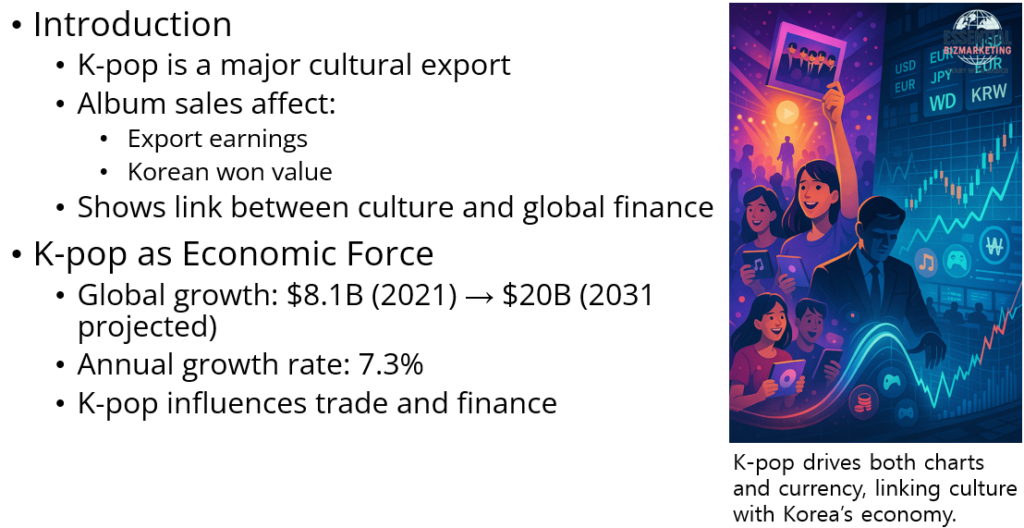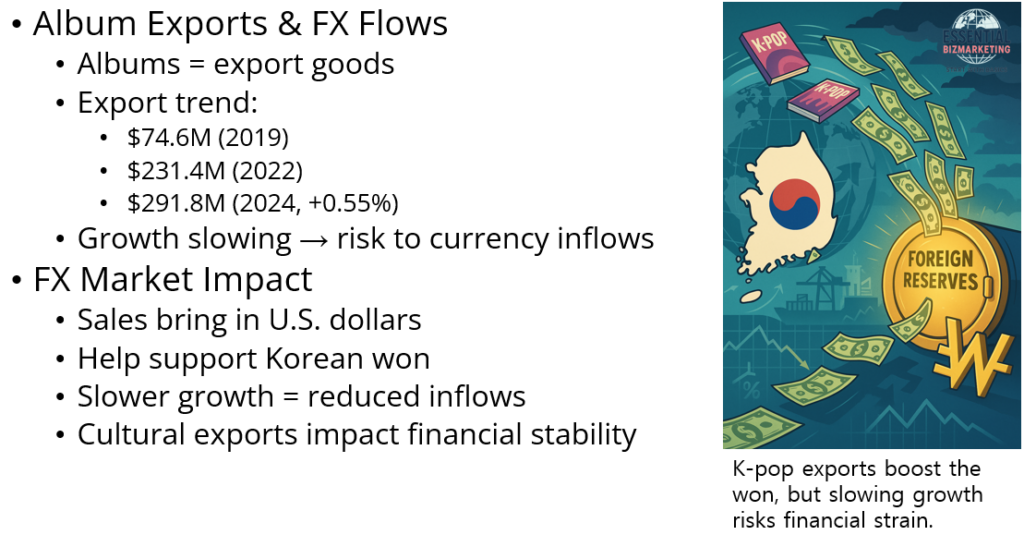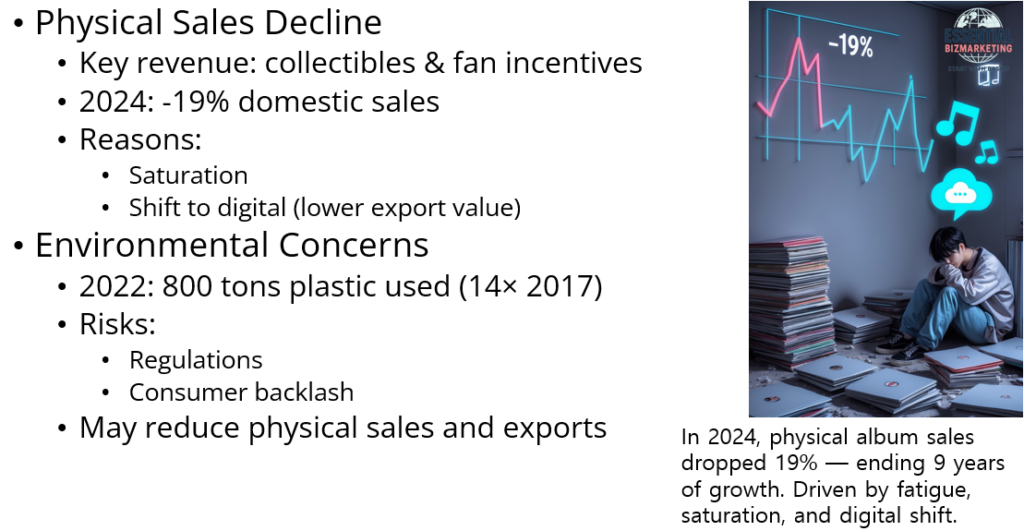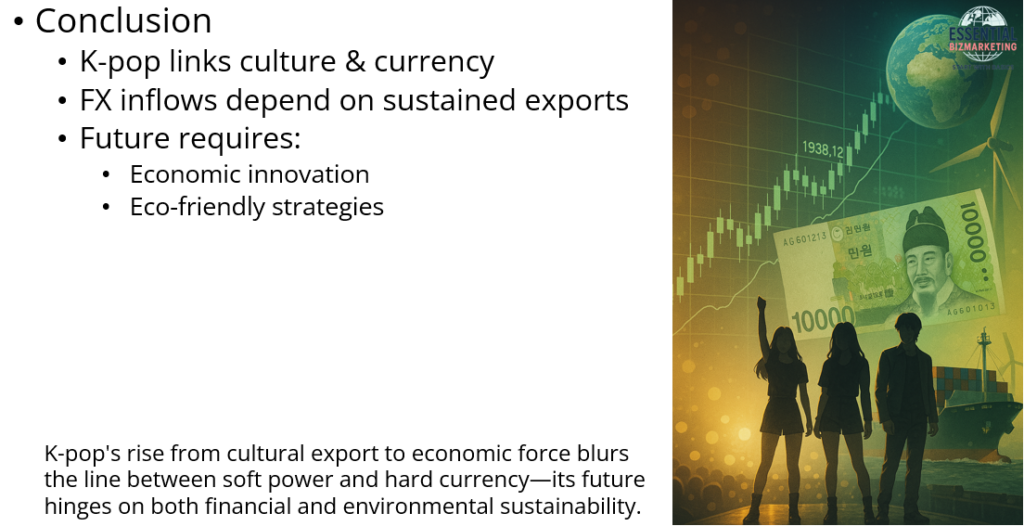Introduction: Cultural Exports in a Financially Integrated World

K-pop, South Korea’s vibrant pop music industry, has evolved into a significant cultural export, influencing not only global music charts but also the nation’s economic landscape. The interplay between K-pop album sales and fluctuations in the foreign exchange market underscores the deep integration of cultural products within global financial systems. In recent years, this relationship has gained visibility as album sales have soared—then plateaued—while affecting export earnings and the strength of the Korean won.
The Rise of K-pop as a Global Economic Force
Over the past decade, K-pop has transcended its domestic origins to become a global phenomenon. In 2021, the K-pop events market alone was valued at $8.1 billion and is projected to reach $20 billion by 2031, reflecting a compound annual growth rate of 7.3%. These numbers demonstrate that K-pop is not merely a cultural trend but an economic driver influencing international trade and finance.
Album Export Revenues and Their Role in Foreign Exchange Flows

K-pop albums, while cultural products, are counted as export goods when sold internationally. In 2024, South Korea’s album exports reached $291.8 million—a slight increase of 0.55% compared to the previous year. This marked a slowdown following dramatic growth from $74.6 million in 2019 to $231.4 million in 2022. The stabilization suggests that the industry may be entering a mature phase where further export-driven foreign currency inflows could decline without innovation or market diversification.
Foreign Exchange Market Implications
Foreign sales of K-pop albums bring in significant U.S. dollar revenues, contributing to South Korea’s foreign exchange reserves and supporting the strength of the Korean won. However, as album export growth slows, so do associated foreign inflows. A prolonged decline in cultural export earnings can create downward pressure on the won, especially in times of broader trade imbalances or capital flight. This makes the stability of the K-pop export sector not only a cultural issue, but also a financial one.
Decline of Physical Sales and Market Saturation

Despite K-pop’s digital prowess, physical album sales have remained a key revenue stream due to fan engagement strategies such as collectible packaging and photocard incentives. However, in 2024, domestic physical album sales dropped by 19%, ending nine years of continuous growth. The reasons include consumer fatigue, market saturation, and the gradual shift toward digital formats, which generate lower per-unit export revenue.
Environmental Concerns and the Push for Sustainable Growth
The physical nature of K-pop albums has drawn criticism for excessive plastic usage. In 2022 alone, nearly 800 metric tons of plastic were used for album packaging—14 times more than in 2017. These environmental concerns may push regulatory action or shift consumer behavior, potentially affecting physical album demand and, by extension, related export earnings.
Conclusion: Sustaining Cultural and Financial Impact

K-pop’s journey from cultural export to economic influencer highlights the increasingly blurry boundary between soft power and hard currency. As album sales feed into foreign exchange reserves, and export performance affects the won, South Korea’s music industry stands as a case study in how modern culture industries are intertwined with global financial dynamics. Future sustainability—economically and environmentally—will determine whether K-pop can continue playing this dual role.
📚 References
Asia Fund Managers. (n.d.). K-pop is making billions for South Korea. Retrieved from https://asiafundmanagers.com/kpop-and-economic-impact-on-south-korea/
Korea JoongAng Daily. (2025, January 16). K-pop industry growth stalls on slowing exports and sales. Retrieved from https://koreajoongangdaily.joins.com/news/2025-01-16/business/industry/Kpop-industry-growth-stalls-on-slowing-exports-and-sales/2223864
Music Business Worldwide. (2025, February 12). K-pop in crisis? Around 93m albums were sold in South Korea in 2024. Retrieved from https://www.musicbusinessworldwide.com/k-pop-in-crisis-around-93m-albums-were-sold-in-south-korea-in-2024-23m-fewer-than-in-2023/
Reuters. (2024, November 21). K-pop’s profligate CD output draws fire as South Korea hosts plastic waste talks. Retrieved from https://www.reuters.com/sustainability/k-pops-profligate-cd-output-draws-fire-south-korea-hosts-plastic-waste-talks-2024-11-21/
📁 Start exploring the Blog
📘 Or learn more About this site
🧵 Or follow along on X (Twitter)
🔎 Looking for sharp perspectives on global trade and markets?
I recommend @GONOGO_Korea as a resource I trust and regularly learn from.
